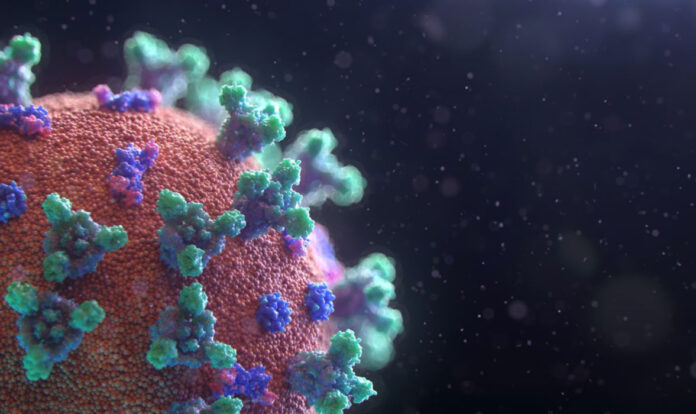
Manny Otiko | California Black Media
Health care specialists, including several medical doctors, are keeping their eyes on coronavirus variants that some fear could lead to new strains of COVID-19 that could possibly undermine global efforts to vaccinate people and stem the global crisis. According to the Centers of Disease Control, the B117 variant (first detected in the UK), the most threatening because of its prevalence, is the cause of 20 % of new infections in the United states – and 30 % of new infections in Florida.
Dr. Nirav Shah, senior scholar at Stanford University’s School of Medicine and chief medical officer of Sharecare, a health data services firm, says there are currently four different variants of COVID-19. He said the virus is adapting because “of evolution and natural selection.”
“The more virus particles there are, the more chances that a single virus particle may be a little different than the rest of them,” said Shah. “One or more virus particles is all you need to have a slight change. Maybe these spike protein changes – just a little – and it can attach to cells better than all the other particles.”
Shah said the virus is adapting as it encounters new hosts. But scientists are in a race to get everyone inoculated before the level of the disease in a community gets too high. The B117 strain, he says, is 50 more % infectious than the original strain of the coronavirus and it could lead to up to a 60 % to 70 % higher rate of deaths, according to a paper published in the journal Nature.
Shah said some of the COVID-19 virus variants could reinfect people who have contracted the disease before. The good news, he says, is that the B117 is susceptible to existing vaccine therapies, although other variants like 1351 (first detected in South Africa) and P1 (first detected in Brazil), could reduce the effectiveness of the COVID shots in patients.
Fortunately, to date, scientists studying COVID-19 have not identified any variants that have been designated “Variants of High Consequence.” Those in that category “cause more disease and more hospitalizations, and they have been shown to defeat medical countermeasures, like vaccines, anti-viral drugs and mono-clonal antibodies,” says Shah.
Shah was speaking at a recent news briefing on COVID-19 Virus variants organized by Ethnic Media Services. Other panelists on the Zoom teleconference were: Dr. Daniel Turner-Lloveras, a member of the Latino Coalition Against COVID-19; Dr. Dali Fan, a UC Davis Health Science clinical professor and Dr. Kim Rhoads, an African American physician and Associate Professor, Epidemiology & Biostatistics, at UC San Francisco’s School of Medicine.
Although the average citizen may be surprised at how COVID-19 is changing, Fan said the virus’ adaptation and mutation are much like other diseases. He also presented some statistics from the Center for Disease Control about the coronavirus vaccines and their development. He said the vaccines were tested before they were released to the public.
“All three vaccines are very effective against symptomatic COVID-19,” said Fan. He said there are differences in the content of the vaccines and how they are stored. Fan said the Johnson & Johnson vaccine, which requires one dose, is easier to transport and is perfect for pop-up clinics and rural areas.
“It may be a better option for people who want to get fully vaccinated quickly,” he said.
Turner-Lloveras said that one of the issues overlooked during the coronavirus pandemic is the impact of the digital divide. Black and Latino communities often lag in vaccination rates because they don’t have access to high-speed Internet to discover information and arrange for their vaccination appointments.
“Internet access is a civil rights issue, at this stage,” said Turner-Lloveras. “All of the resources that are provided to people are online.” He also said more than 20 million seniors don’t have broadband access. “This is a group that needs to be vaccinated, but they don’t have access to the Internet,” he said.
According to Rhoads, some reports about Black hesitancy and under-vaccination may not be accurate. She talked about her experiences serving a predominantly African American population in San Francisco through Umoja Health, a coalition of community health organizations in the Bay Area. She said the people who were tested by community members were also eager to get the vaccines. However, she attributes their willingness and openness with their confidence in Umoja Health.
“The community developed rapid trust in us,” she said. “We saw neighbors going door to door, knocking, telling people to come out and get tested. “What we recognized from that mass-testing site was that it was not going to work for the African American community,” said Rhoads. “But something more intimate would.”


